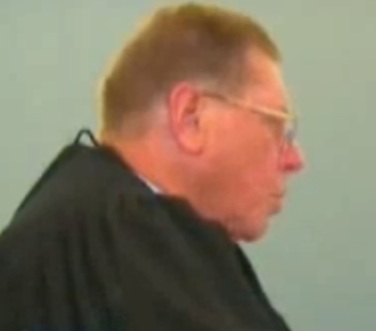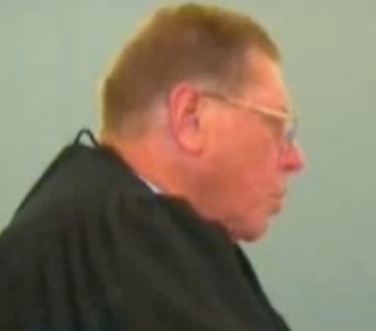
With just days left to the October 8th deadline the three defendants in the White Pine County commission recall defamation suit have asked Senior Judge Charles Thompson to render his decision on their motion to dismiss sooner rather than later according to court documents filed this week.
Filed by Attorney Julie Cavanuagh-Bill on behalf of James Adams Timothy McGowan and Cheryl Noriega the “Request For Review” reminds Judge Thompson that “all the responsive pleadings have been filed and the matter is now ripe for review Pursuant to NRS.41.660 the Court may now rule on the Special Motion to Dismiss as of September 30..”
The original motion to dismiss was filed on August 28. And while a month to the defendants may seem like more than enough time to make a ruling most lawyers would caution against hurrying a judge just as a matter of principle.
The reason for the impatience could be that in less than a week the dead line of the original recall passes and if it passes without the requisite 821 signatures needed to force a recall election it may not matter what the judge decides.
“From what I understand he can throw out the defamation suit, keep the defamation suit or throw out the defamation suit and then order the recall process to begin all over again,” Burleigh said. “Obviously the recall supporters would prefer the last.
click link for full motions: Requests for Review
Two weeks ago the Advocate reported that recall supporters have asked the courts to extend their October 8th deadline to get 821 signatures needed to force a recall election of White Pine County Commissioners John Lampros and Mike Lemich.
 “From what I heard it is looking pretty bad,” said one source who spoke on the condition of anonymity. “They had some success in the beginning but a lot less now. Some people said they would sign it but are afraid they might get sued.”
“From what I heard it is looking pretty bad,” said one source who spoke on the condition of anonymity. “They had some success in the beginning but a lot less now. Some people said they would sign it but are afraid they might get sued.”
 The fear of being sued was in reference to a defamation suit filed by Lemich and Lampros against recall organizers James Adams, Timothy McGowan and Cheryl Ann Noriega over what the suit described as blatant falsehoods the three wrote in the recall petition statement.
The fear of being sued was in reference to a defamation suit filed by Lemich and Lampros against recall organizers James Adams, Timothy McGowan and Cheryl Ann Noriega over what the suit described as blatant falsehoods the three wrote in the recall petition statement.
 “I don’t know if this has ever been used before,” said Ely attorney Richard Sears who represents both men. “But the statements in the recall petitions were so obviously false that both my clients felt they had no choice but to file the lawsuits.”
“I don’t know if this has ever been used before,” said Ely attorney Richard Sears who represents both men. “But the statements in the recall petitions were so obviously false that both my clients felt they had no choice but to file the lawsuits.”
That quote also made into the motion to dismiss that the defamation suit was a Strategic lawsuit against public participation (SLAPP) suit.
 According to Wikipedia: Strategic lawsuit against public participation (SLAPP) is a lawsuit that is intended to censor, intimidate, and silence critics by burdening them with the cost of a legal defense until they abandon their criticism or opposition.
According to Wikipedia: Strategic lawsuit against public participation (SLAPP) is a lawsuit that is intended to censor, intimidate, and silence critics by burdening them with the cost of a legal defense until they abandon their criticism or opposition.
The typical SLAPP plaintiff does not normally expect to win the lawsuit. The plaintiff’s goals are accomplished if the defendant succumbs to fear, intimidation, mounting legal costs or simple exhaustion and abandons the criticism. A SLAPP may also intimidate others from participating in the debate. A SLAPP is often preceded by a legal threat. The difficulty is that plaintiffs do not present themselves to the Court admitting that their intent is to censor, intimidate or silence their critics. Hence, the difficulty in drafting SLAPP legislation, and in applying it, is to craft an approach which affords an early termination to invalid abusive suits, without denying a legitimate day in court to valid good faith claims.
